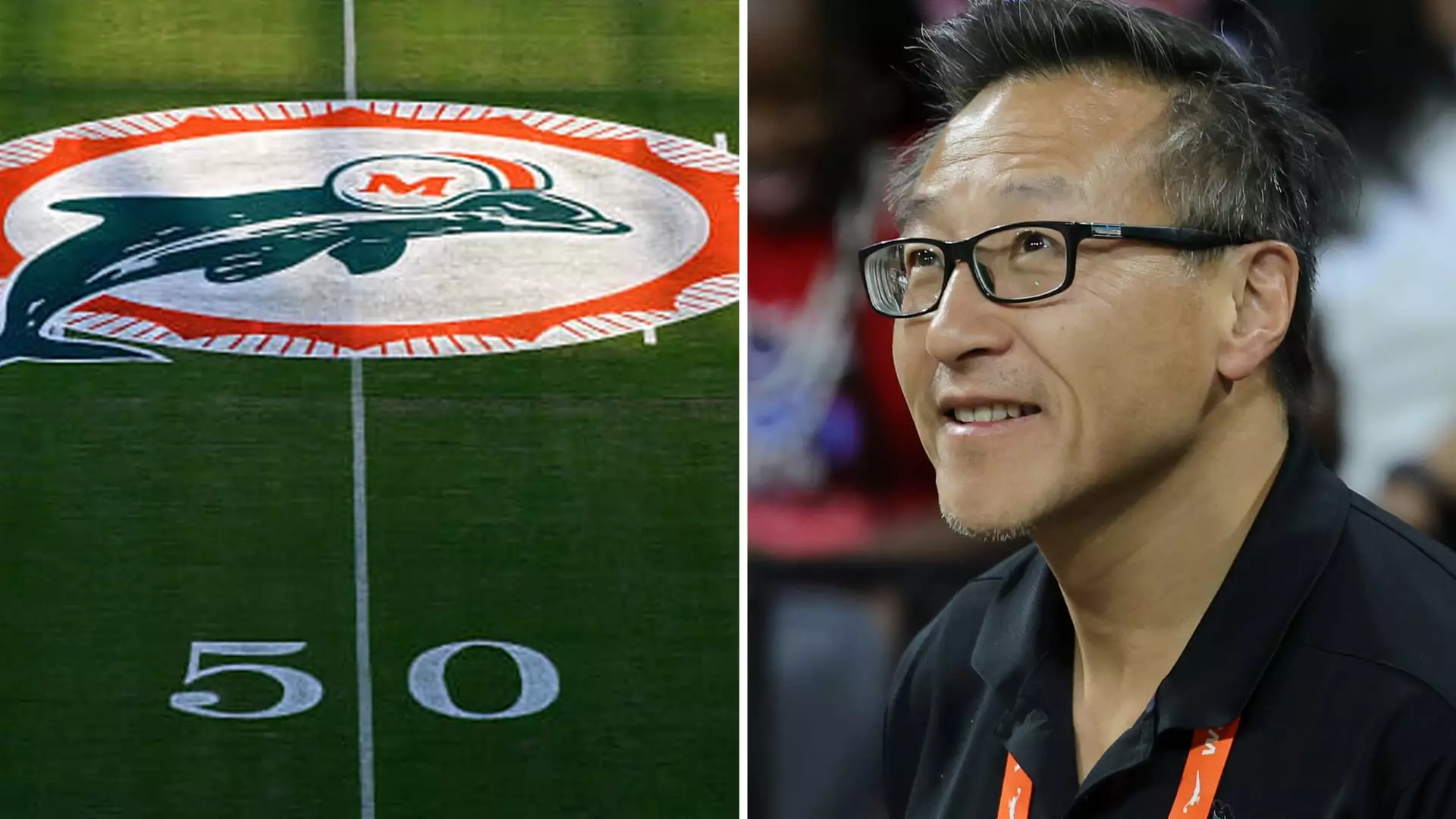The Miami Dolphins, one of the most recognized franchises in the NFL, are currently engaged in advanced negotiations to offload a minority stake in the team to a consortium that includes private equity firm Ares Management and billionaire Joe Tsai. This potential deal exemplifies a larger trend among sports team owners who are increasingly seeking to diversify their portfolios. These owners are not only looking to invest in various teams but are also interested in gaining operational control of the stadiums, which can yield substantial revenue through hosting major events.
Reports indicate that this deal could evaluate the entire package of the Miami Dolphins, Hard Rock Stadium, the Miami Grand Prix, and the Miami Open at an impressive $8.1 billion. This figure is noteworthy but falls short of the $10 billion valuation that would be necessary for a controlling interest in the same assets. The NFL’s new financial regulations, approved as recently as August, have opened the door for private equity investments, making this the league’s first major move in this arena. While the Dolphins are recognized as the eighth most valuable team within the league at a valuation of $7.1 billion (excluding the stadium value), one cannot ignore the implications of this transaction on the business model of sports franchises.
Stephen Ross, the owner of the Miami Dolphins, purchased the franchise back in 2009 for $1.1 billion. His motivations for selling a minority stake appear to be multifaceted. Not only does Ross aim to reinvest the proceeds into his robust South Florida real estate portfolio, but he also seeks to expand his involvement in the sports landscape further. The revenue generated from the dealings surrounding the Dolphins, the Grand Prix, and the tennis tournament forms a lucrative opportunity for operational growth, creating multiple streams of income.
The Dolphins reportedly generated $673 million in revenue in 2023 alone, a clear testament to the profitability of the franchise under Ross’s ownership. However, Ross had also turned down a monumental $10 billion offer earlier, preferring to maintain the team within his family, indicating a strong emotional attachment alongside the commercial imperatives.
This inclination among NFL owners to bring in private equity proves that even in a traditionally conservative league, there is a shift towards modernization and progressive business strategies. The inclusion of private equity investments heralds a new era in the NFL, where franchises are increasingly set to navigate complex financial waters. This change arises as the league grapples with rising valuations that have made ownership both alluring and challenging.
Ares Management, which oversees assets worth approximately $450 billion, stands poised to become a significant player in the NFL investment landscape. This firm is among a select few that the NFL has allowed to take a stake in its teams, thereby altering the previous limitations that discouraged such investments.
For Joe Tsai, the billionaire founder of Alibaba Group and owner of the Brooklyn Nets, this investment could represent another critical victory in his growing sports portfolio, which already spans across multiple franchises. In addition to the Nets, Tsai’s holdings encompass the New York Liberty, the San Diego Seals, and a share of the Las Vegas Desert Dogs, reflecting a strategic vision for capitalizing on diverse sporting interests. His operational control over venues like the Barclays Center further cements his position in the sports industry, allowing him to wield significant influence and drive revenues across various events.
As the talks surrounding the Miami Dolphins progress, it becomes quintessential to understand the larger implications of these negotiations on the NFL and the sports industry as a whole. The integration of private equity into team ownership could pave the way for enhanced financial strategies and investment phenomena while highlighting the interconnectedness of sports franchises and their operational entities. As stakeholders engage in discussions about future investments, one can only wonder how this shift in ownership dynamics will shape the sports landscape in the years to come.



Leave a Reply